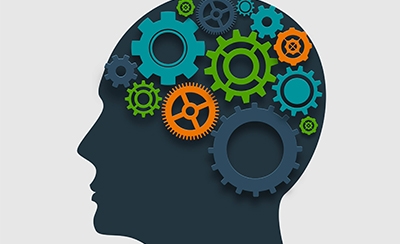
African countries must address the capacity gap that feeds the digital divide. Unless this missing link around capacity is broken, it will be difficult to leverage the potentialities offered by digital transformation and upscale digitalization to unlock Africa’s structural transformation.
This view was expressed by the Executive Secretary of the Africa Capacity Building Foundation (ACBF), Prof Emmanuel Nnadozie, when welcoming participants to the 8th Africa Think Tank Summit, a 2-day virtual event, which opened on 9 December.
Held under the theme, “Digital Transformation in post-COVID-19 Africa: Opportunities, Challenges and Options for Building Back better”,the Summit was held to find innovative ideas and strategies for impacting public policy and supporting the implementation of Africa’s digital transformation agenda.
Prof Nnadozie said the Covid-19 pandemic had accelerated the arrival of the future in Africa, with digital services being critical for lockdowns and working from home, leading to a huge surge in data traffic.
However, the impressive interest on digitalization and related issues that Africa is witnessing is just a mere reflection of the anticipation and hope that digital transformation will propel African countries from its position of economically less performing continent to a virtual center of innovation and sustainable development.
The good news is that young Africans have turned the Covid-19 crisis into an opportunity to find innovative digital solutions to the challenges posed by the pandemic. Examples include the mSafari contact-tracing application for travellers, created by FabLab in Kenya; the Wiqaytna application created in Morocco to notify people when someone they have been in contact with tests positive for Covid-19; and the Global Mamas in Ghana, which produces reusable masks and solar-powered contact-free hand-washing stations using local materials.
Yet despite the progress being made and the dynamism shown by Africa, the continent is still lagging when compared to other regions of the world. For instance, the percentage of the population covered by 3G and 4G networks in 2020 was respectively 76% and 58% in Africa, 94% and 84% in Asia, and 93% and 83% in Latin America and the Caribbean.
“It is therefore opportune to discuss and provide solutions to the key challenges faced by Africa in advancing its digital transformation agenda,” Prof Nnadozie said.
According to him, the last five years have witnessed several transformative changes in Africa, with huge implications in the digital agenda. Some of the key initiatives include:
- The establishment of the African Continental Free Trade Area (AfCFTA) aimed at creating a single market generating a combined GDP of more than US$3.4 trillion and benefit more than one billion people.
- The launch of the Digital Transformation Strategy for Africa (2020-2030) to harness digital technologies and innovation to transform African societies and economies.
- The creation of a new Center for the Fourth Industrial Revolution (C4IR) in South Africa to foster dialogue and cooperation on the challenges and opportunities presented by advanced technologies.
“These initiatives, if successfully implemented, may be game changers that galvanize the results of the digital revolution in Africa,” the Executive Secretary said.
This is particularly so, because a recent report by the Global System for Mobile Communications (GSMA) showed that mobile technologies and services contributed more than US$130 billion of economic value added.
The Report indicated that 300,000 people had formal jobs in mobile telecoms in sub-Saharan Africa, and the sector supported another 1.1 million livelihoods in the informal sector and 1.8 million other jobs. Moreover, tax revenue was estimated at US$15 billion through consumer taxes and US$5 billion through corporate and employment taxes.
However, despite these good examples, some challenges remain. For instance, according to the Executive Secretary, evidence from Africa’s Development Dynamics 2021 shows that only 17% of self-employed workers living in rural areas use the Internet, compared to 44% for those in urban areas. Moreover, digital innovation is concentrated in very few places, with only five African cities hosting half of the most dynamic start-ups: Cape Town (12.5%), Lagos (10.3%), Johannesburg (10.1%), Nairobi (8.8%) and Cairo (6.9%).
According to Prof Nnadozie, Africa’s low performance in digital transformation is explained by structural and long-standing challenges, key among them are the following:
- The failure to adopt appropriate and coordinated policies and strategies at national, regional, and continental levels.
- The weak institutional and regulatory capacities, complicated by the variety of actors and new institutions along the supply chain values and across borders.
- The lack of adequate digital skills/expertise which limit the capacity of local stakeholders to drive the adoption and scaling up of digital services.
- The limited resources to continue building the capacity of all stakeholders in the ICT sector.
Looking at the evidence and using the example of the mobile economy, Prof Nnadozie said African countries would have to address the capacity gap that feeds the digital divide or it would be difficult to leverage the potentialities offered by digital transformation to unlock the continent’s structural transformation.
The Executive Secretary expressed sincere gratitude to ACBF’s partners who made the holding of the 8th Africa Think Tank Summit possible, and have in fact contributed to the successful implementation of each Summit held, since 2014.
They included: the African Development Bank (AfDB), the African Export-Import Bank (Afreximbank), the African Peer Review Mechanism (APRM), the African Union Commission (AUC), the African Union Development Agency (AUDA-NEPAD), the Arab Bank for Economic Development in Africa (BADEA), and the Development Centre for the Organisation for Economic Co-operation (OECD-Dev).
The rest were: The International Cooperation Centre of China’s National Development and Reform Commission (ICC-NDRC), the Islamic Development Bank (IsDB), the On Think Tanks (OTT), the Southern Voice, the United Nations Economic Commission for Africa (UNECA), the United Nations Development Programme (UNDP), and the United Nations Office of the Special Adviser on Africa (UNOSAA).





